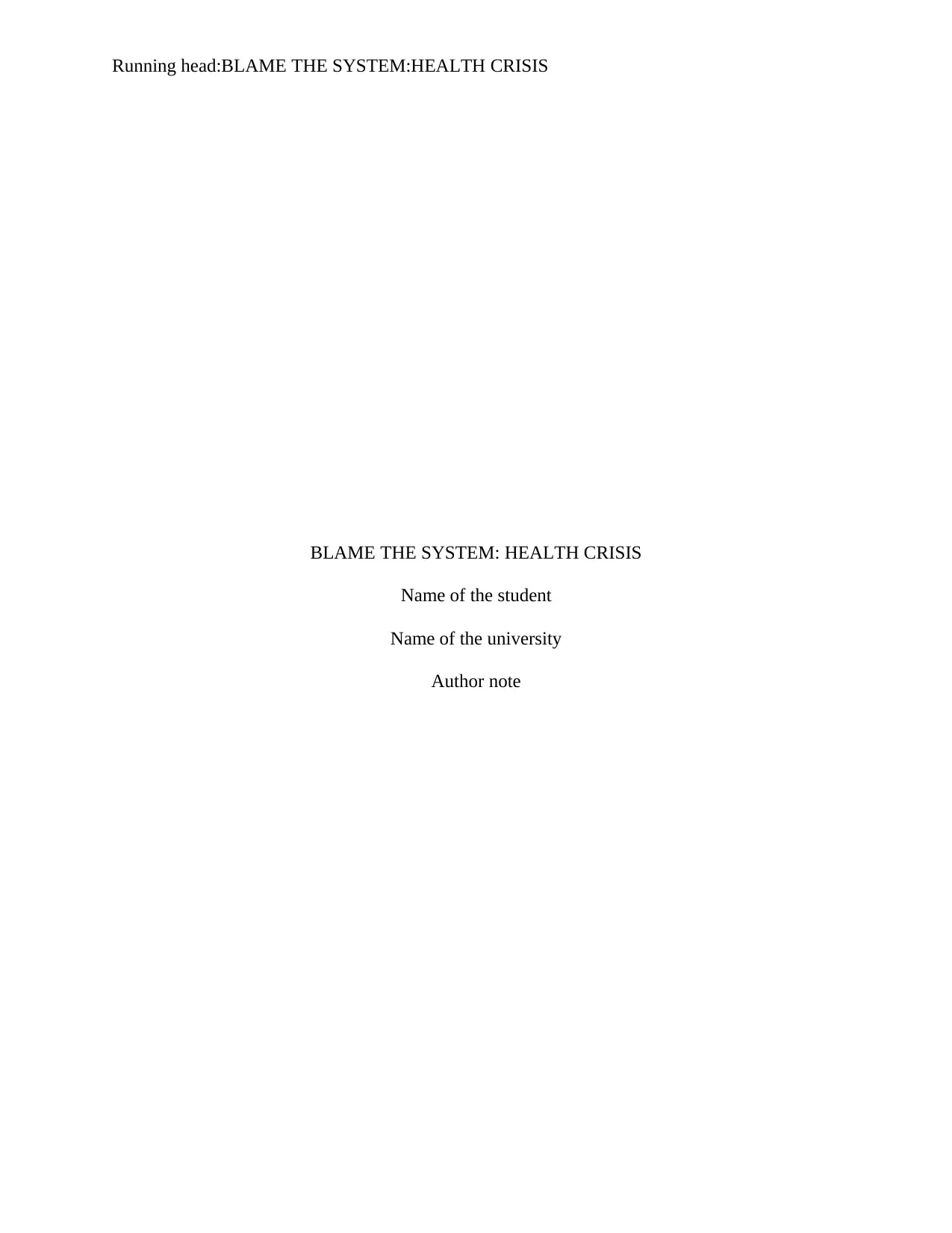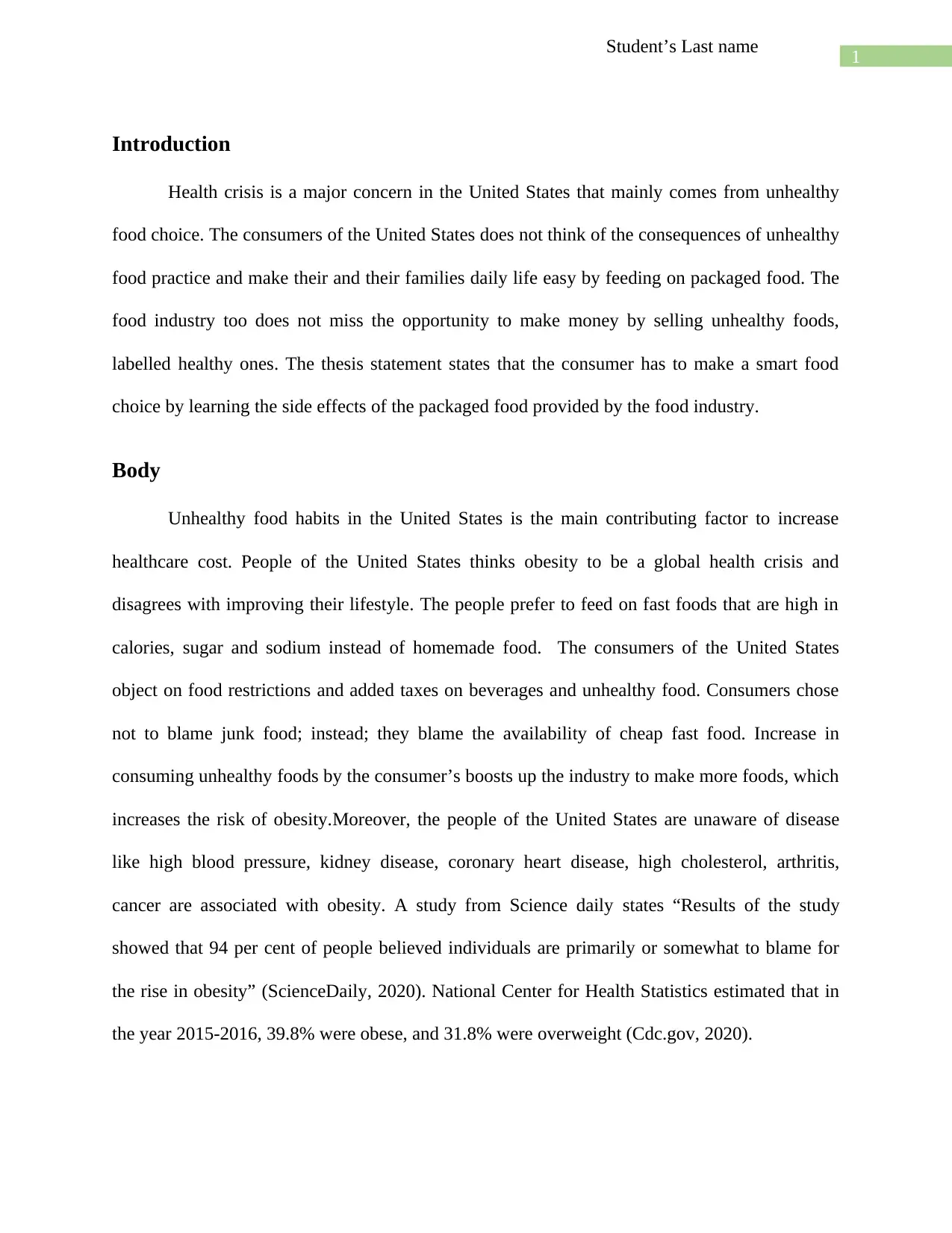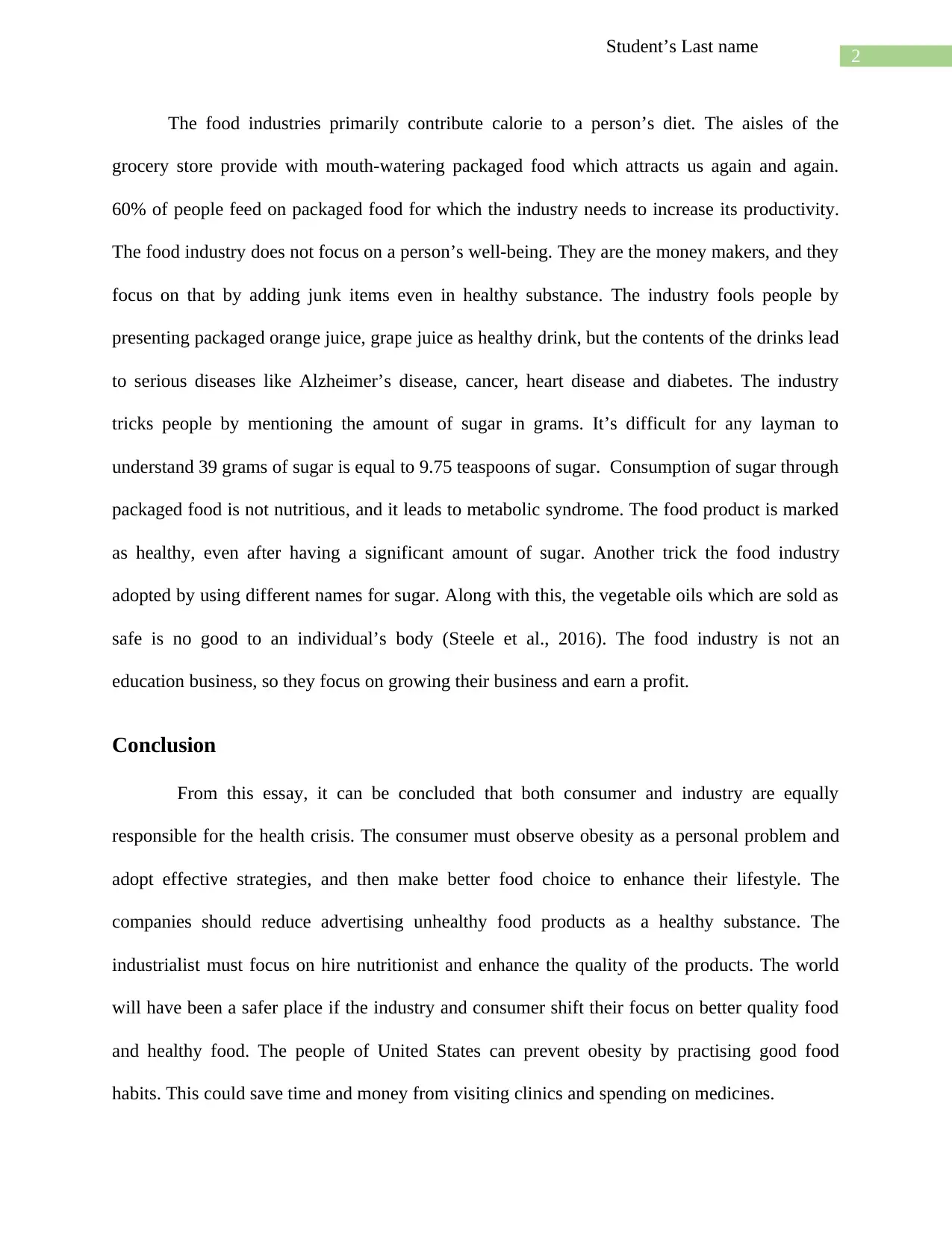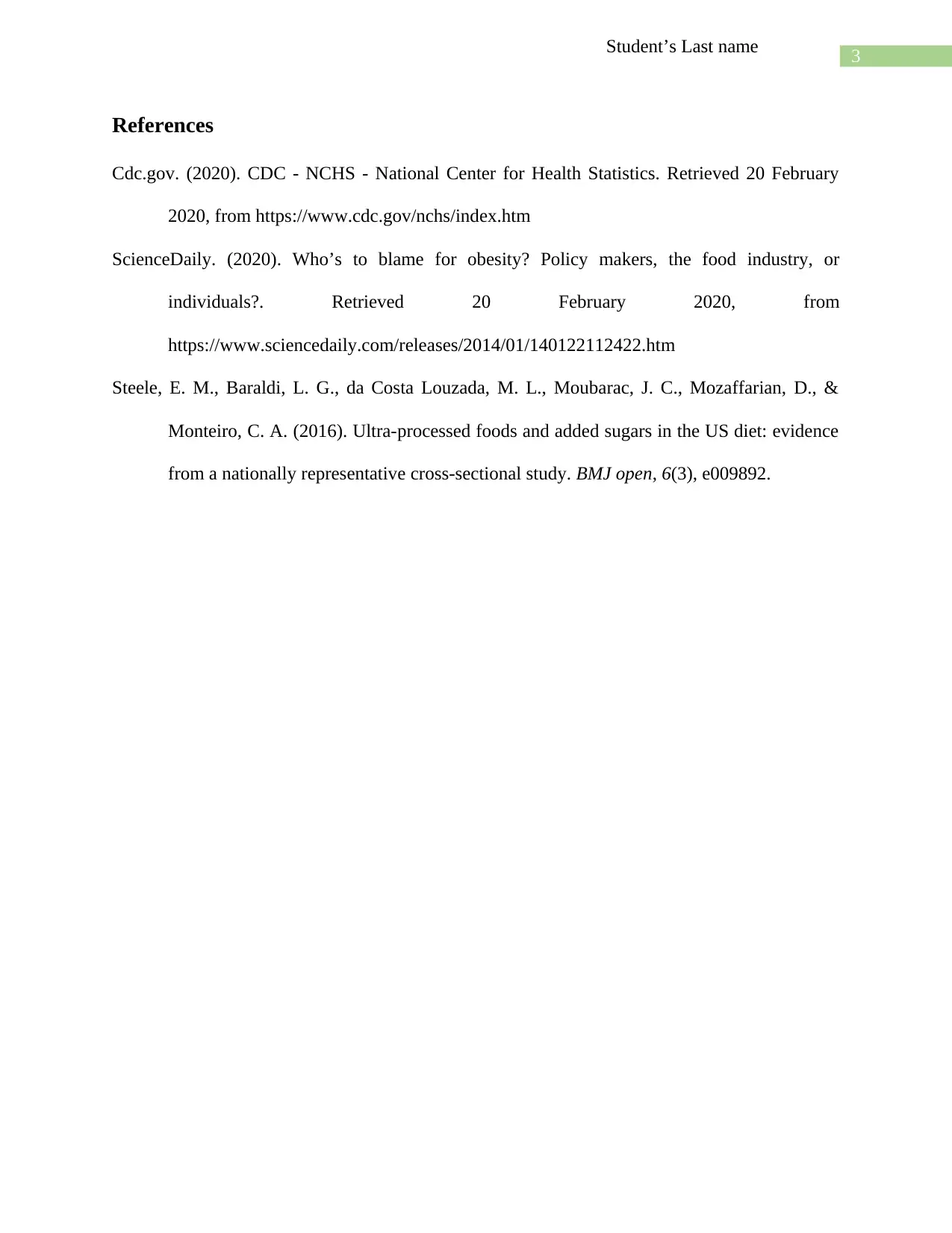Health Crisis in the United States: Consumer & Industry Analysis Essay
VerifiedAdded on 2022/08/08
|4
|863
|18
Essay
AI Summary
This essay explores the health crisis in the United States, attributing the issue to unhealthy food choices by consumers and the food industry's practices. It argues that consumers often prioritize convenience over health, relying on packaged foods and overlooking the consequences of high sugar, sodium, and calorie intake. The essay highlights the industry's role in promoting unhealthy products, often misleading consumers with deceptive labeling. It emphasizes the link between obesity and serious health conditions like heart disease, diabetes, and certain cancers. The author concludes that both consumers and the food industry share responsibility and that a shift towards better food choices and more ethical industry practices is crucial for mitigating the health crisis. The essay references studies from ScienceDaily and the CDC to support its arguments.
1 out of 4










![[object Object]](/_next/static/media/star-bottom.7253800d.svg)